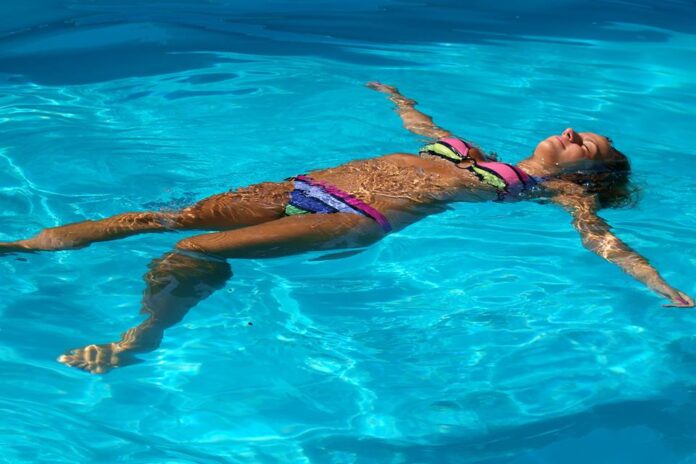The coronavirus is spread through the air by contaminated droplets. Is water a vector of propagation and can you be infected by swimming in a pool or in the sea?
Can you catch coronavirus while swimming in the pool?
Swimming pool water is treated with chlorine and other disinfectants (bromine, ozone, UV …), it is unlikely that the virus will survive there very long. Chlorine thus kills most microorganisms in less than 30 minutes. On April 24, the High Council of Public Health (HCSP) clarified that “no study concerning the survival of SARS-CoV-2 in swimming pool water is currently available, but also specified that l ‘swimming pool water does not seem to be a suitable place for the survival and development of viruses’.
Can you catch coronavirus while swimming in the sea?
The French research institute for the exploitation of the sea (Ifremer) has carried out analyzes of seawater samples on the three maritime facades of mainland France and has not detected any trace of the coronavirus. Data deemed “reassuring” even if the sampling is limited. In addition, the virus appears to be very sensitive to light. According to a US government study, “sunlight has a powerful effect on killing the virus, both on surfaces and in the air.” The half-life of the virus (time required to halve its dangerousness) is reduced to two minutes in the presence of sunlight, against 18 hours for a given temperature between 21 ° C and 28 ° C and a humidity level 20%.
The chances of survival of the virus in small natural water basins, lakes and ponds are nevertheless greater than that of treated or salted water, warns the Spanish Scientific Research Council (CSIC).
Promiscuity, the real danger of swimming
Whether at the pool or at the sea, it is not so much the water that presents a risk, but rather the overcrowding. Since we don’t spend our time underwater, we can become infected if a sick person blows or throws contaminated droplets next to it. Especially since when swimming, you tend to expel water through your mouth and breathe hard. This explains why the beaches limit their access and why the swimming pools are preparing to adopt measures to restrict entry. It is also possible to be contaminated by contact with a metal ladder, a deckchair or a door handle in the changing rooms. It is therefore essential to wash your hands after bathing.





